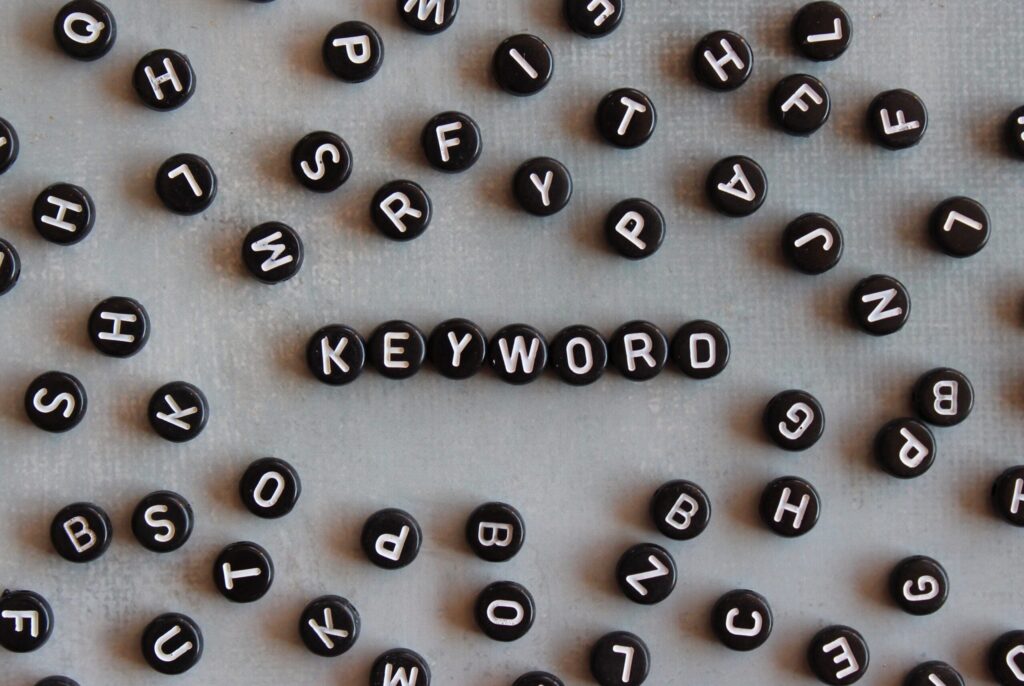Optimising Google Ads Campaigns: Choosing the Right Keyword Match Types for Success
When exploring advertising possibilities with Google Ads, the careful selection of keywords and keyword match types—be it broad match, phrase match or exact match—becomes pivotal for the success of your campaign. Understanding the unique advantages and optimal use cases for each can significantly impact the performance of your campaign.
For advertisers to begin targeting the right keywords and keyword match type, they must research and understand your business offerings, whether it’s a service or a product you offer. Google Ads keywords serve a different purpose compared to search engine optimisation (SEO) keywords, primarily due to their target audience. While Google Ads keywords can complement search engine optimisation, the reverse is not recommended, primarily due to considerations related to costs and returns on investment (ROI).

Keyword Match Types
Broad Match Keyword
With broad match, your ads may appear when a user’s search query includes any word in your key phrase, in any order. It offers a wide reach and can capture variations and synonyms. Broad match is the gateway to extensive visibility. With this match type, your ads have the potential to appear for a variety of search queries containing any word from your key phrase, in any order.
Advantages
Increased Visibility: Broad match allows your ads to span a broad spectrum of search queries, expanding your reach and enhancing visibility.
Discovery of New Keywords: By tapping into the expansive landscape of broad match, you can uncover new and relevant keywords that may have otherwise gone unnoticed.
Example
Let’s consider a hypothetical scenario with a broad match keyword.
Broad Match Keyword: Running Shoes
With a broad match keyword like Running Shoes, your ad may appear when users enter search queries related to or containing the words “running” and “shoes,” in any order and potentially along with other words. This gives your campaign a broad reach and allows Google to interpret the user’s intent more flexibly.
Here are some examples of search queries that could trigger your ad:
- “Best running shoes for beginners”
- “Affordable shoes for running“
- “Running sneakers with arch support”
- “Are running shoes necessary for jogging?”
While broad match provides a wide range of potential matches, it’s important to note that it can also lead to your ad being triggered by searches that might not be directly relevant to your product or service. To manage this, it’s crucial to regularly review search terms in your Google Ads account and add negative keywords as needed to refine your targeting.
Using broad match can be beneficial for discovering new and unexpected search terms that might be relevant to your business, but it requires ongoing monitoring and optimisation to ensure your ad budget is spent effectively on the most relevant searches.
Note
However, a note of caution is in order; the broad reach may lead to impressions for some less relevant queries, potentially resulting in clicks that don’t convert. Vigilant monitoring and strategic adjustments are essential.

Phrase Match Keyword
Ads appear when a user’s search query includes the exact phrase you specified, with additional words before or after. It provides a more targeted reach compared to a broad match. For advertisers seeking a balance between reach and precision, phrase match emerges as a powerful ally. Ads are triggered when a user’s search query includes the exact phrase specified, along with additional words before or after.
Advantages
Balanced Reach and Precision: Phrase match strikes a middle ground, offering a more targeted reach compared to a broad match while still allowing for variations in the specified phrase.
Controlled Variations: This match type accommodates controlled variations, providing flexibility without compromising precision.
Example
Let’s continue with the hypothetical scenario and consider a phrase match keyword.
Phrase Match Keyword: “Running Shoes”
With a phrase match keyword like “Running Shoes”, your ad may appear when users enter search queries that include the exact phrase “running shoes,” but with additional words before or after it. This provides a more targeted reach compared to broad match.
Here are some examples of search queries that could trigger your ad:
- “Best running shoes for women”
- “Running shoes for flat feet”
- “Top-rated running shoes“
- “Where to buy running shoes online”
In this case, your ad will be triggered as long as the user’s search query includes the phrase “running shoes” in the specified order, but additional words can be present.
Phrase match offers more control and specificity compared to broad match, making it a good choice for advertisers who want to capture a more targeted audience while still allowing for some variations in search queries. As with broad matches, regularly reviewing and adjusting your strategy based on performance is important to ensure optimal results.
Note
Ideal for advertisers aiming for a more focused audience, phrase match offers a nuanced approach to targeting.

Exact Match Keyword
Ads appear only when a user’s search query exactly matches the keyword. It offers the most precise targeting. Ads appear exclusively when a user’s search query precisely matches the specified keyword.
Advantages
Maximum Precision: Exact match delivers the highest level of precision and control, ensuring your ads are displayed only for exact keyword matches.
Budget Efficiency: This match type often leads to more efficient spending, as your budget is directed towards specific, high-converting queries.
Example
Let’s continue with the hypothetical scenario and consider an exact match keyword.
Phrase Match Keyword: [Running Shoes]
With an exact match keyword like [Running Shoes], your ad will only appear when users enter search queries that exactly match the specified keyword, without additional words or variations.
Here are examples of search queries that could trigger your ad:
- “Running shoes“
- “Buy running shoes“
- “Running shoes for sale”
In this case, your ad will only be triggered when the user’s search query exactly matches the keyword [running shoes].
Exact match provides the highest level of precision and control over which search queries trigger your ads. It is suitable for advertisers who want to capture a very specific audience and ensure that their ads are shown only to users searching for the exact terms specified.
However, keep in mind that using an exact match may limit the reach of your campaign and it’s important to monitor performance and adjust your strategy accordingly to ensure you are reaching your desired audience effectively.
Note
Exact match is the go-to choice for advertisers with a crystal-clear understanding of the specific terms that drive conversions, especially for branded keywords or those with proven conversion rates.
Strategic Tips and Optimisation Techniques
To maximise the effectiveness of your Google Ads campaign, consider adopting a combination approach. Many successful advertisers leverage a mix of match types in their campaigns, strategically balancing reach and precision for optimal results.
Additionally, diligent monitoring of keyword performance is crucial. Regularly analyse the data gathered from your campaign to identify trends, insights and areas for improvement. Adjust your match types based on this data to continually refine and optimise your campaign over time.
In conclusion, navigating the diverse landscape of Google Ads requires a nuanced understanding of keyword match types and a commitment to ongoing optimisation. By carefully selecting and strategically deploying broad match, phrase match and exact match, advertisers can unlock the full potential of their campaigns, reaching the right audience with precision and efficiency.







